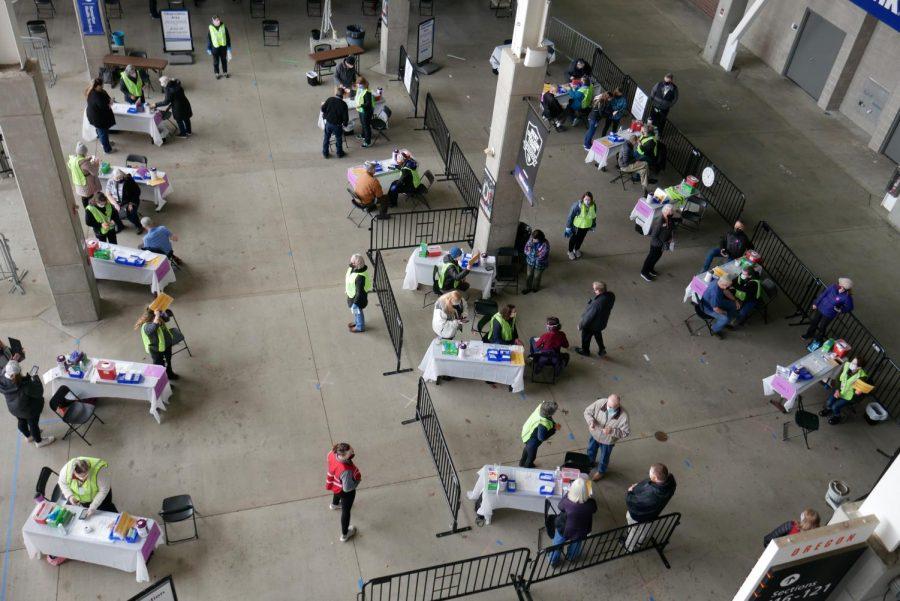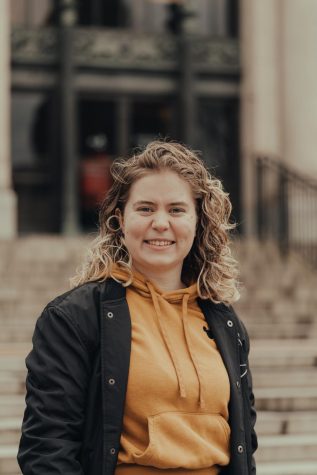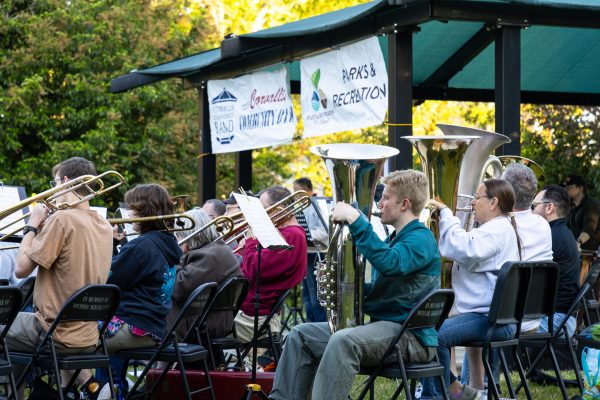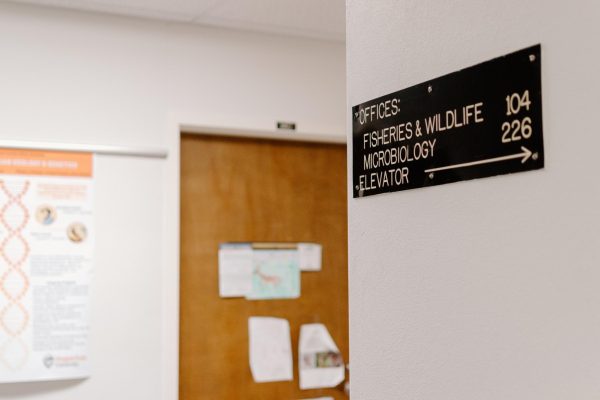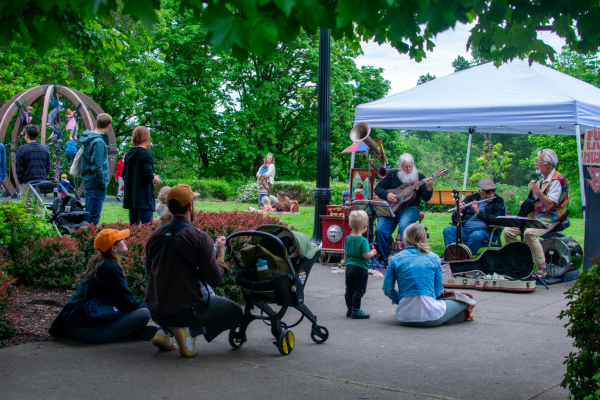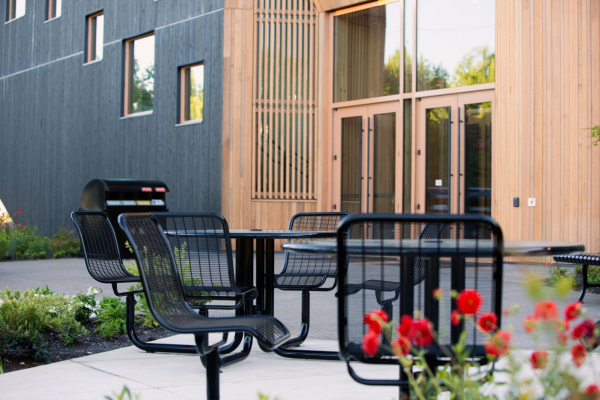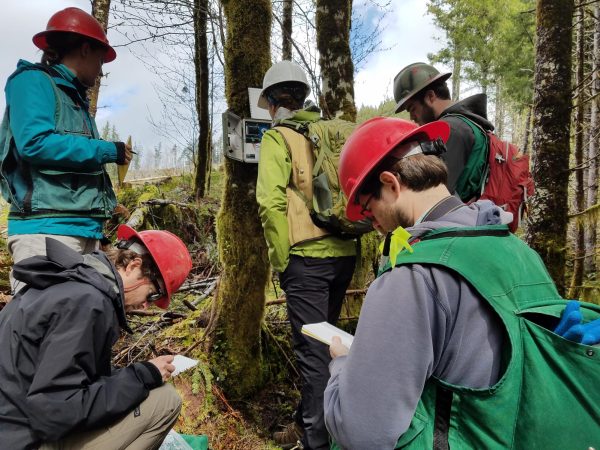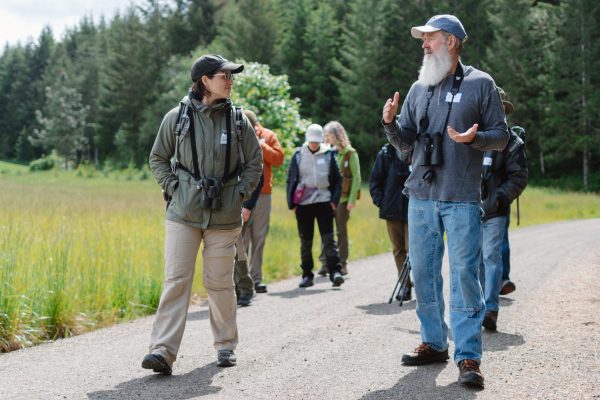Funding from FEMA will support mass vaccination clinics
March 9, 2021
After being awarded $3.1 million from the Federal Emergency Management Agency, Benton County will use this money to support mass vaccination clinics for COVID-19, but vaccination rates are not expected to increase.
Over two months after COVID-19 vaccinations were released to the public, Oregon began administering the vaccine to citizens every day. According to Jonathan Modie, the lead communications officer of the Public Health Division at Oregon Health Authority, Benton County has one of the highest rates of vaccination based on the county’s population. Currently, the vaccination rate is 1,784 people per 10,000 and over 16,000 people from Benton County in total have been vaccinated.
OHA requested additional help from FEMA to support mass vaccination clinics across the state, including those in Benton County who, in response, are being loaned over $3 million to help fund their mass vaccination clinics.
“OHA, through its COVID-19 Incident Management Team, asked FEMA to support current large-scale vaccination sites that could administer up to 6,000 doses per day,” Modie said via email.
In addition, OHA asked for FEMA to help with several other aspects of vaccination, including reimbursement to health care workers connected to vaccine clinics, virtual support of the plan to build the nationwide vaccination structures and technical assistance to provide specific recommendations for people with disabilities.
This funding from FEMA, however, won’t be directly tied to additional doses of vaccines and will instead help mass vaccination clinics access more resources needed for vaccine disbursement.
“The funding will be used primarily to [support] our mass vaccination sites and ensure equitable access to these resources,” Bryan Lee, emergency manager and emergency operations center director for Benton County, said via email. “Software programs, limited duration staff to support our call bank, and supplies are just some examples of how the funding will be used.”
This funding won’t tie directly into providing more vaccines, however, because vaccines are still limited and finding more vaccines to give to the general public is easier said than done, according to Lee. OHA is currently in control of how many vaccines each county receives.
“Our biggest limiting factor is the actual number of vaccine doses available,” Lee said. “We have plenty of volunteers, staff, supplies and partnerships ready to go, but we simply don’t have enough doses to administer as many as we could. This funding will mainly help ease some of the concerns about finances, but it is a cornerstone mission to be good stewards to our community funds and maximize our public health and safety efforts.”
Additionally, the money that Benton County is receiving from FEMA is given on a reimbursement basis, meaning the money will have to be repaid due to the urgency and need for Benton County residents that have yet to be vaccinated.
“This is not unusual in disaster situations to be eligible to receive money, the difference is that FEMA and the federal government pre-awarded Benton County and obligated funds to the State of Oregon in advance,” Lee said. “We will still need to supply documentation and request reimbursement.”
Benton County has the funds to use for now, though, and will use the money to provide additional support to mass vaccination clinics such as Samaritan Health, which has partnered with other counties to provide vaccines to the public.
“We are partnering with Benton, Lincoln and Linn counties to operate the mass vaccination clinics in each of these counties,” Ian Rollins, the media contact for Samaritan Health said via email. “We have administered first and second doses of the vaccines to more than 30,000 individuals.”
Rollins also added that the mass vaccinate site has the ability to vaccinate up to 2,000 people a day and the site has been administering first and second doses to about 7,500 people every week. Samaritan Health does not expect the funding from FEMA to directly affect these numbers.
“We do not believe the FEMA funding will directly correlate to additional vaccines, but this funding will help support the county in mass vaccination efforts and the associated expenses they are incurring as we move forward,” Rollins said.
However, Samaritan Health is committed to vaccinating local communities as quickly as possible and encourages everyone to get their vaccines when eligible.
“The vaccines are one of our best tools to bring an end to the pandemic,” Rollins said. “They have been proven safe and effective through clinical trials which were much larger than typical clinical trials usually are.”
While the vaccination process has been slower than many would have hoped due mostly to a limited number of vaccines, officials around the state claim to be doing what they can to provide vaccines to local citizens quickly and efficiently.
“We understand there is a lot of concern around being able to get the vaccine, and we appreciate the community’s willingness to work with us through the process as we ensure equity and accessibility,” Lee said. “As soon as we have more access to vaccine doses, we will ramp up significantly… Our goal is to ensure everyone in the community has access to a vaccine if they chose to get one.”












































































































